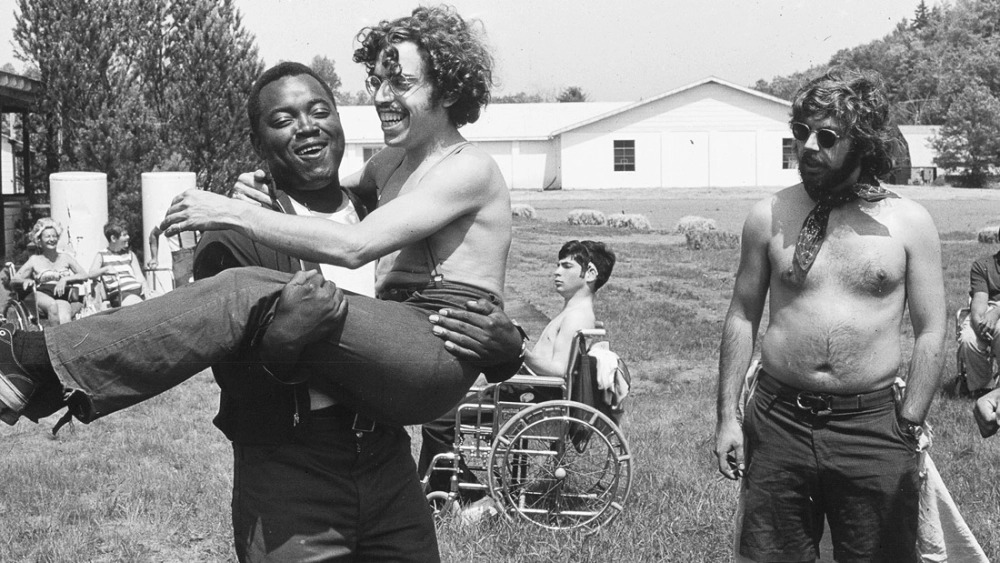Before I begin this article, I have a confession. I don’t normally read film reviews. I have all the respect in the world for film critics and have written my own reviews, but as a filmmaker I find film to be like any art form – subjective. I prefer to watch a film and make a decision on my own. Still, like all Internet users, I occasionally find a review and find myself reading it. That’s what happened today.
One thing that stands out about film reviews, articles, and even films is that after all the work is done, they are essentially broken into sound bites. Little digestible nuggets of truth or controversy are sent out into the ether to quote, lament about, or to educate. In the case of Variety film critic Peter Debruge’s review of Crip Camp, a documentary by filmmakers Jim LeBrecht and Nicole Newnham. , the quote that struck me the most would have to undoubtedly be:
“In the end, “Crip Camp” isn’t about disability so much as the incredible ability this community showed, overcoming physical barriers and personal discomfort in order to be taken seriously.”
It only takes this sentence to realize that Mr. Debruge doesn’t understand disability. It’s clear early on that Mr. Debruge has limited knowledge of disability history, but that doesn’t become too much of a problem until this sentence is uttered. Here’s the thing, I know he means no offense, and, I don’t take what he said with any, at least not personally. However, it’s well-meaning unintentional microaggressions like this that keep disabled people from being seen as people.
You don’t have to watch Crip Camp to know that this film is about disability rights. The film is called Crip Camp for a reason. A derivative of the pejorative ‘cripple’ a term that has been used to harm/describe disabled people for centuries, the term crip itself has been reclaimed by many within the disability rights movement. Saying Crip Camp is not about disability but rather “ability” is condescending, even if well-meaning. It’s erasure. It’s removing disability for the comfort of nondisabled people.
Perhaps removing disability makes it easier to digest the idea that someone had to cause themselves physical discomfort to be considered a person in the first place. Maybe it makes nondisabled people feel empowered knowing that a person was willing to fight for their autonomy so much so that they would throw themselves out of a wheelchair, crawl up steps, or chain themselves to a fence in a demand to be seen. But here’s the thing, and please listen when I say this. It’s not your power.
In removing the dis- from ability, you remove what makes us wholly unique. You remove what made some of us have to crawl up those steps or chain ourselves to those fences. You attempt to take the little power we have only to wash over it and erase what makes us heard when no one wants to listen. You don’t get to do that unchecked.
Many non-disabled people, like this film critic, are so inspired by the actions that disabled people are forced to take. Perhaps they should be disgusted by nondisabled society because it is this society that forces us to take those steps. You make us crawl up steps because you refuse to give us enough ramps. You make us chain ourselves to fences because if we sit by the fence, you can walk around us as if we are invisible.
Crip Camp shows the world a lot of things. It shows that disabled people aren’t that different than nondisabled people. It shows that disabled people have been ostracized simply because of the perception we are different. It also shows that when push comes to shove, if a person needs to be heard they will make sure their needs are met any way they can.
If you’re inspired by Crip Camp, that’s fine. Honestly, with as much work as it takes to make a film, everyone should be in awe at all of the films that are being put out by anyone, disabled or not. However, if you’re inspiration convinces you to remove our disabilities for your comfort, you need to re-watch the film because I am certain that was not the intention.
In closing, I urge those of you that saw the film and are proud of the work that disability activists have done to go do a little research on the subject because the job isn’t done. The ADA isn’t all-inclusive. Society doesn’t treat us like we are human because we demand our rights. We’re the “vulnerable” and as such our rights are almost always the first to be cast aside. Sure, we have the ADA, but we still have streets without curb cuts, buildings without ramps, homes without accessible bathrooms, and not enough PCA hours to get through the day. We make it work if we’re lucky because we’re just like everyone else. That’s not to say that we’re not disabled. It’s just to say, we’re human.
Image Description: a screenshot from the film Crip Camp shows a white disabled man being carried by black disabled man outdoors in the camp in upstate New York in the 70s. There are other disabled people in the background including a man in a manual wheelchair. The photo is black-and-white. Photo credit to Netflix and Crip Camp
